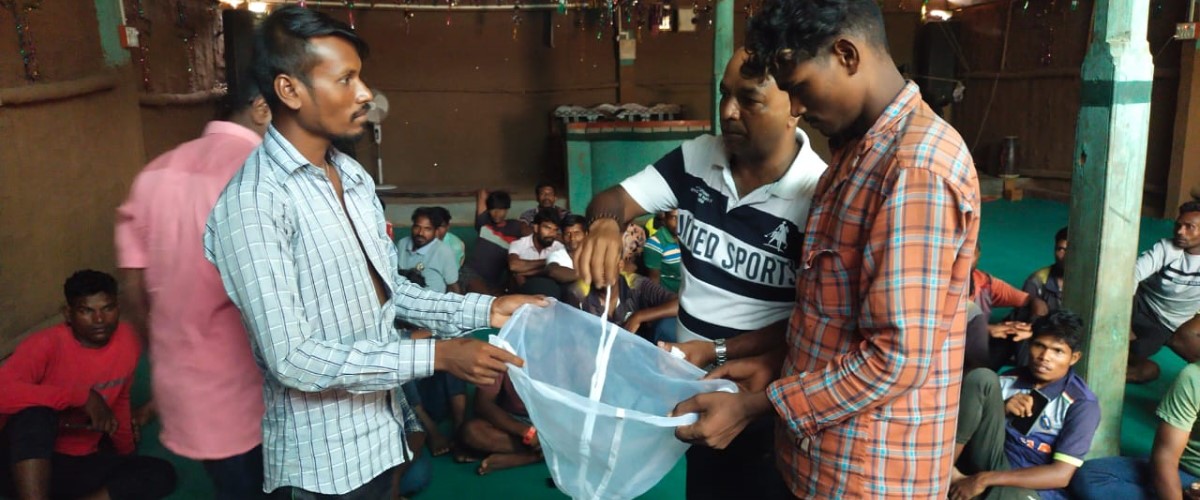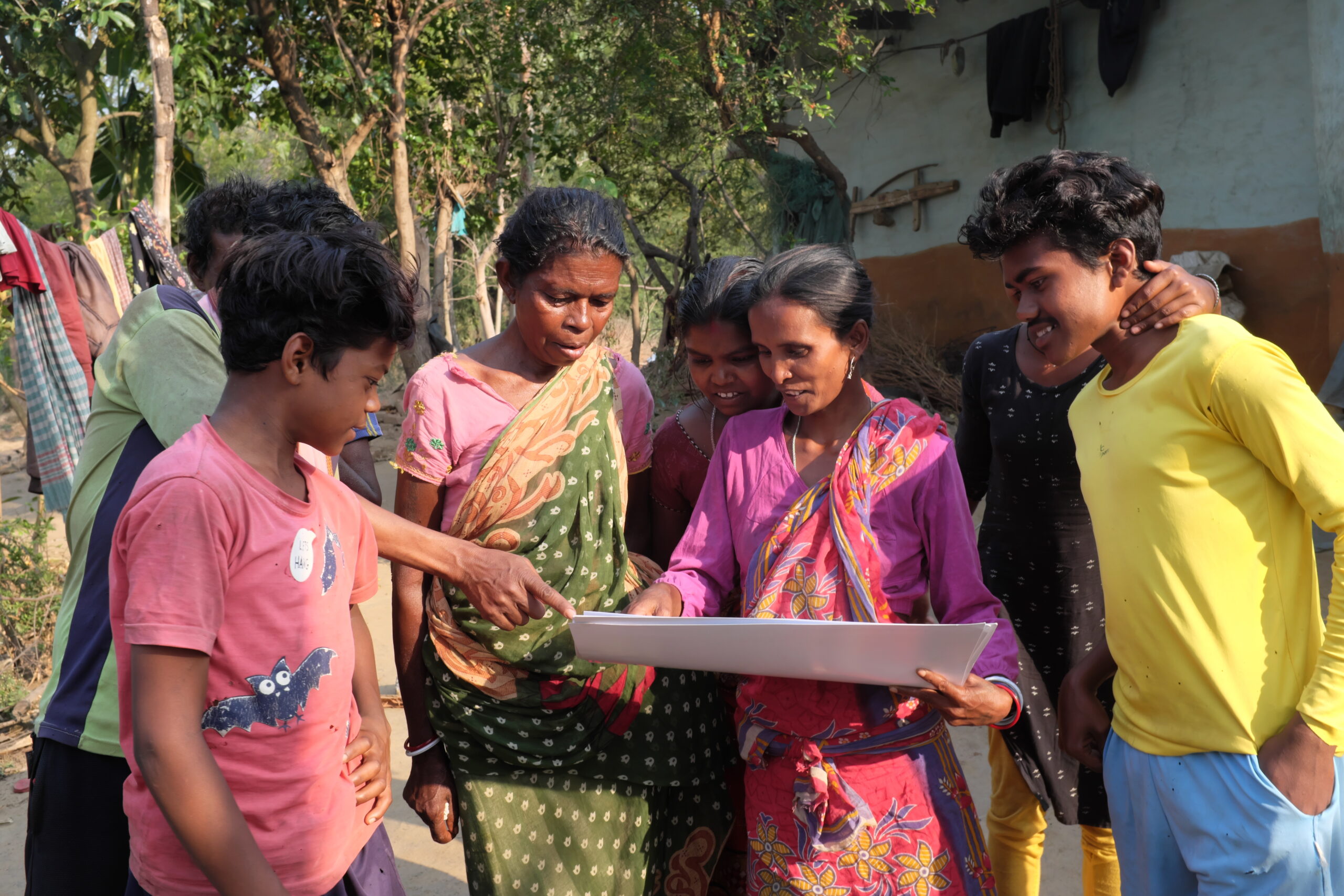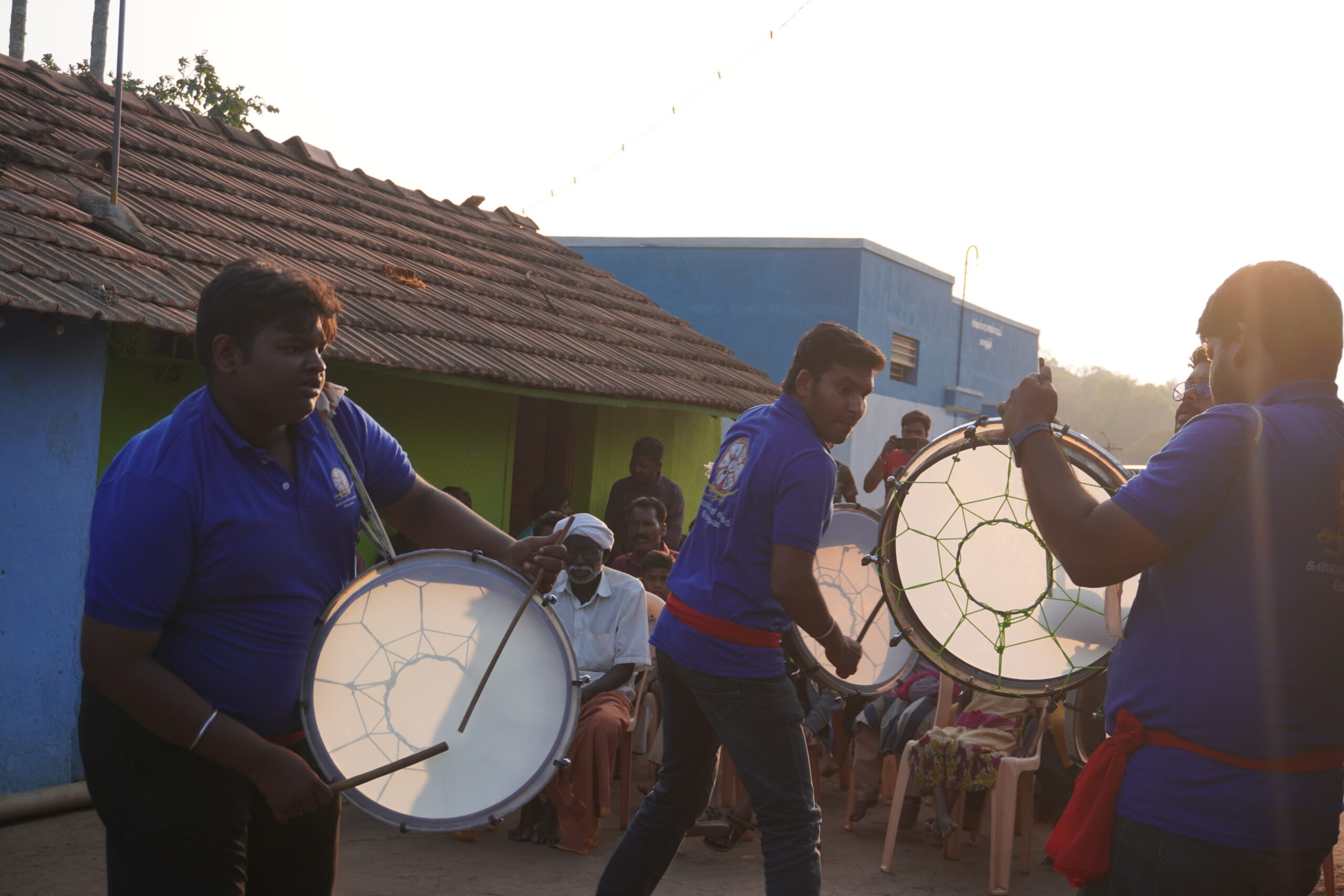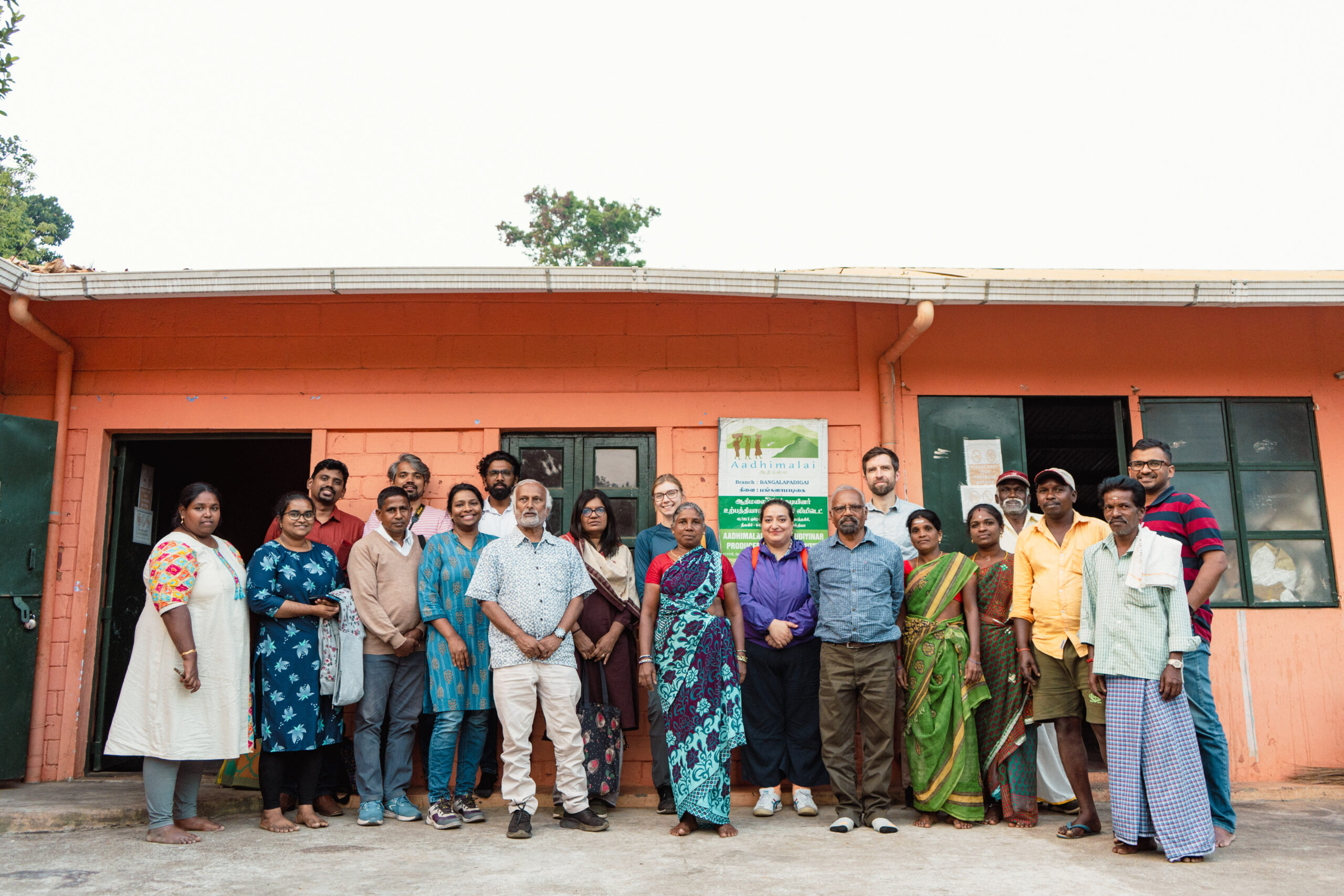July 6, 2023
By Justin Raj
Additional Programme Coordinator, Biodiversity Conservation
Along with Ashok Miller from Last Forest Enterprises, Justin from our Biodiversity programme’s Apiculture team travelled to Chichigaontha village in Dang taluk, Gujarat, to offer a two-day training in sustainable and hygienic practices in honey harvesting held on July 5 and 6. They spent time exchanging knowledge with the local Gavit community, whose members are involved in honey gathering and farming. The training took place in a community church. Keystone was invited to engage with the community members here by Dhiresh Joshi and Aditya Roy, local bee enthusiasts who have been working to uplift honey gatherers in Gujarat. They also helped translate the sessions to the participants.
On day one, the team met with 50 honey gatherers of ages 25 to 50, who have been working with bees for decades and harbour a wealth of knowledge, while facing a lack of markets and enterprise that can allow livelihoods to flourish. Justin spoke about sustainable techniques of harvesting honey, while Miller elaborated on the process of hygienically collecting, and bottling Apis dorsata honey. The gatherers also attended sessions on wax melting and candle making to promote sustainable use of honey, where the beeswax is also utilised for livelihoods.
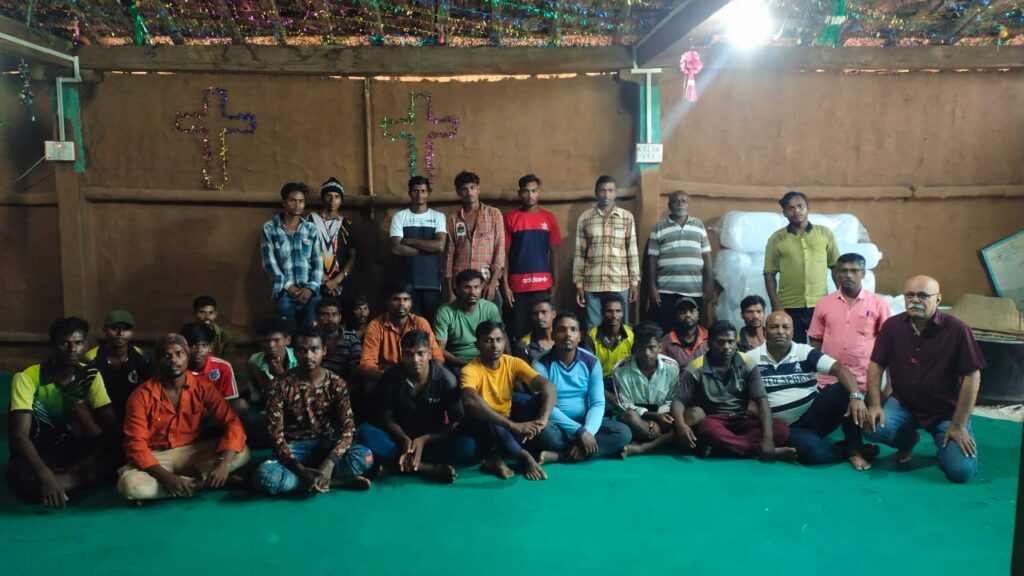
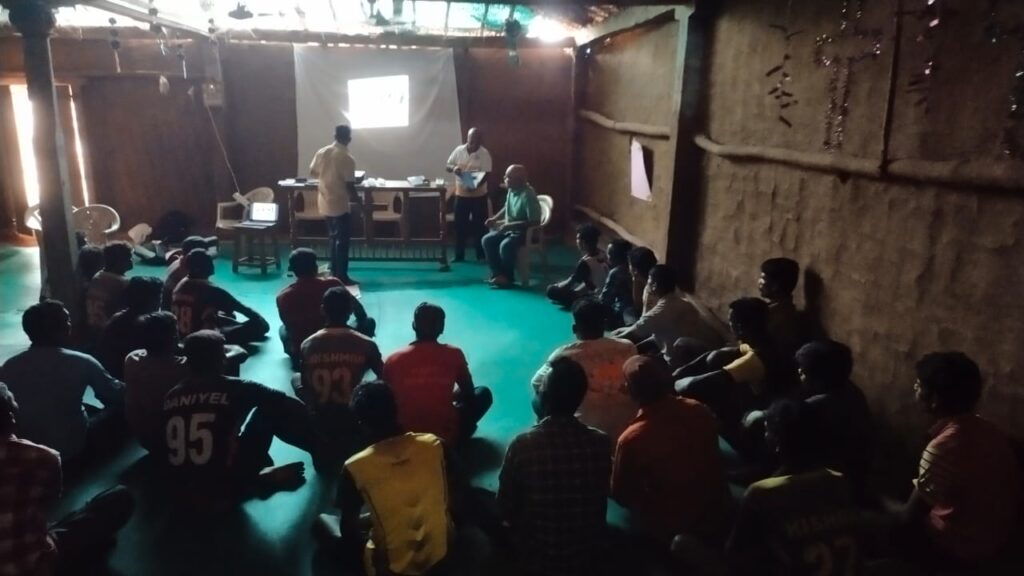
On day two, we arrived at the village in the morning to meet with the participants, and began with a screening of the Honey Hunters of the Blue Mountains film that features honey-hunters who skillfully scale up precarious cliffs to extract honey from wild beehives. The team repeated the previous day’s training for an additional 19 new participants.
Justin’s session on sustainable practices explored the anatomies of hives, the nuances of quality control and handling, filtering, storage and water content. Close attention was paid to the arrangement of cell architectures and comb structures. He also spoke at length on pollination. The participants especially appreciated our knowledge on filtering, and found our presentation on the process of filtering without squeezing combs extremely useful. They were also keenly interested in the use of refractometres and techniques of testing honey for moisture.
Keystone also provided the group with 40 cans with 20 litres capacity each, which are optimal for food storage, and three nylon nets for protection against stings while handling bees. Food and other provisions were also distributed to the participants of the two-day training.

